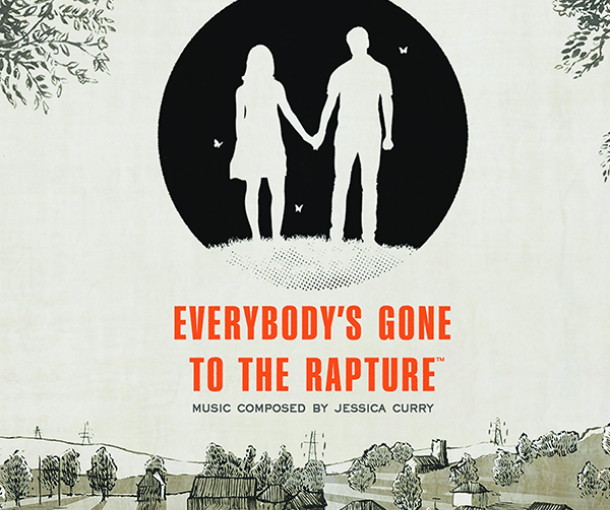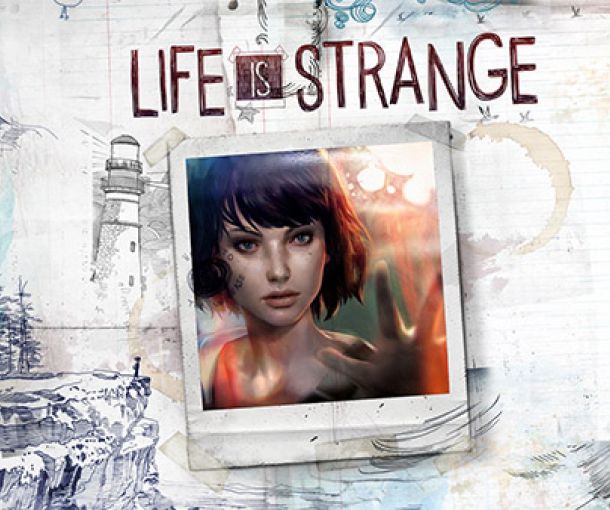How 'Beyond: Two Souls' Changed Storytelling
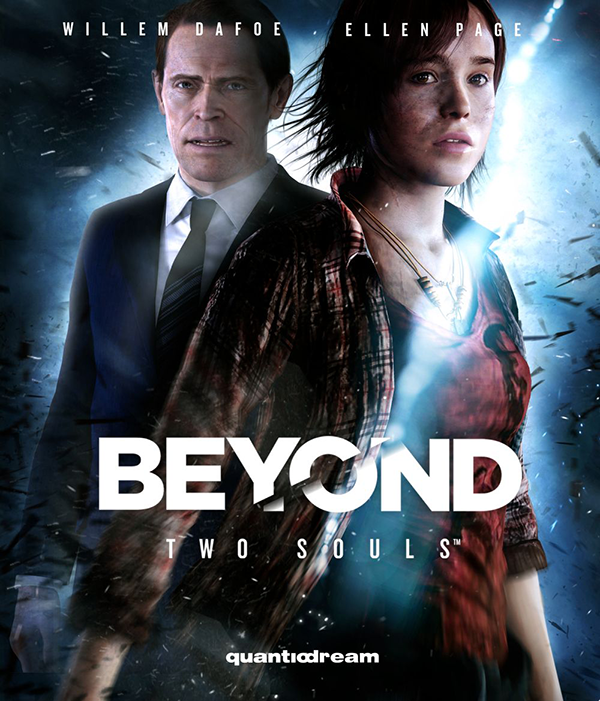
I remember when Beyond: Two Souls was originally released and how badly I wanted to play it. The trailer was truly like nothing I had ever seen in a video game.
The graphics were mind-meltingly realistic—the facial expressions of a twinge in the cheek or flutter in an eye captured a humanistic element that had never before been accurately conveyed digitally. The story seemed mysterious and heartfelt, while at the same time packed with action. And that was all nothing compared to the truly monumental element that set Beyond apart from everything else; the creators enlisted real-life A-list actors, Ellen Page and Willem Dafoe, and turned their dramatic performances into realistic game characters that could actually be controlled and played.
Beyond premiered at the Tribeca Film Festival in 2013, and rightfully so. This game was a movie, or rather, this movie was a game. David Cage, writer and director, compiled over 2,000 pages of story in his masterful 10 hour choose-your-own-adventure opus with the entire game being constructed around real-life motion capture technology. Every car door slamming, body flying across the screen, or heartfelt tearjerking moment was physically acted out by a human, with his casting being just as critical as it is in a Hollywood blockbuster.
When the game initially released, I didn’t have a PS3 and wasn’t able to play it. I almost felt shortchanged by being one of the first to get my hands on a PS4. Here was this epic, first-of-its-kind game being released and it wasn’t even supported by the newest flagship technology. I understood why—games take years to develop and production started long before the PS4. However, I assumed there would be a port after the PS3 had it’s last hurrah and the dust settled, but it never came. At least not until this holiday season, just a little over two years later.
While the production was pioneering, the biggest challenge the game faced was critics. Any project usually has to climb one pile of self-important cynical bastards, but Beyond had two—both the movie and video game industry. Journalist writing typical reviews that followed a standard scoring system or template was an inherently flawed process due to Beyond having 24 different endings. Depending on how you played the game and what choices and decisions you made for the main character (Ellen Page) resulted in countless deviations on how you reached the ending and the experience you had. My experience playing the game was not going to be the same as your experience playing the game—which is an amazing possibility and technological achievement.
If you were a movie critic, you hated the game because the picture quality was not the pristine cinematic experience you’ve come to expect. While technically speaking the game was a graphical masterpiece, but to the movie critic it still looked like computer animation and left them unimpressed due to their reference point. The story was also much longer than a movie, perhaps being more comparable to an HBO series, coming in at around 10 hours of gameplay. That requires a lot more commitment. There were also minor plot inconsistencies or loopholes, which when dealing with supernatural subject matter that isn’t based in reality (do you know how souls work?) and a story that has 24 different outcomes, one would assume to have bits and pieces left to the imagination. If you dissect The Odyssey or Star Wars you’ll find that not everything matches up, yet at the heart they’re still masterful stories. Because Beyond was prided on realism, critics didn't seem afford them that luxury.
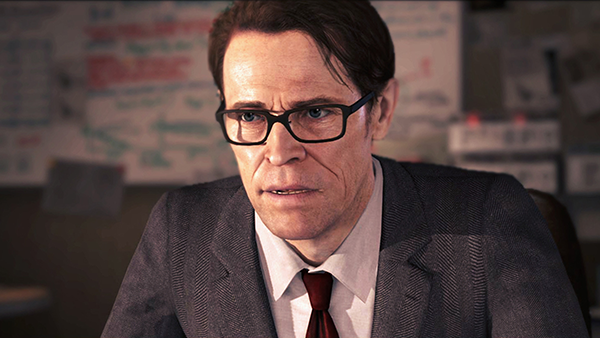
Even with all of that said, the film critics couldn’t deny the superb effort given by Page, Dafoe, and Eric Winter. The actors nailed it, on par with any movie of its time and beyond anything ever seen in a video game. Many critics credited their completion of the game solely to the Academy Award nominated cast and their ability to eerily transcend computer graphics and suck them into this paranormal world, even bringing them to tears at times throughout the experience.
And that’s the crux of this particular story- it was an experience. Not really a game, not really a movie, but a new medium to tell a story and engage an audience in a much deeper way. Had Cage turned his story into a book, play, or traditional movie it would have been an injustice to Beyond's fundamental foundation. The story hinged around your ability to make choices for Jodie (Ellen Page), not only to determine her fate but to build your emotional bond with her. Cage, as a writer, created a new way for you to become connected to his characters, a huge evolutional jump in storytelling. By you having an active hand in “controlling” Jodie during influential moments of her life, you were crushed when tragedy struck. You couldn’t help but second guess yourself, seek vengeance on those who had wronged her, and wonder how the world may have been different if you had made better decisions—just as you would in real life. It gave a sense of ownership and emotional protectiveness over her character, in a way that no movie ever could.
The other side of the critic’s coin were gamers, and they shredded Beyond. Gamers have become so narrow minded because if a game doesn’t fit into one of three categories—open-world, shooter, or sports—they somehow feel robbed of the video game experience. They’ve become programmed to expect certain rules that video games are supposed to follow; a choose-your-own-adventure should be 200 hours long and focused on character building and leveling up with nonsensical and repetitive tasks to only eventually circumvent back to the main story in order to progress further along in the game. Rinse and repeat. While that’s okay for some video games, that in no way would have represented the story or experience that Cage was trying to convey. There’s also a portion of gamers that want highly competitive simulations that tests ones physical ability of being better at pushing buttons than their opponent; such as Madden or Call of Duty. It’s the same formula we’ve seen over and over again since Atari and if a game doesn’t fall into one of those categories, critics respond like a console spitting out a scratched disc. Ultimately, core gamers didn’t know what to do with Beyond, when the simplest solution was to just enjoy it.
Rarely in video games are we given the chance to simply enjoy an experience. To embark on a writer’s vision, like we would a book, but who’s story could only be told through the means of a video game. An interactive experience that was created not because a marketing team sat around and considered what fantasy you might enjoy living out, but because it was the only way in which David Cage could accurately tell his story. Hemingway never consulted a focus group or wrote books based on what readers wanted to read. He wrote because he was compelled to do so. Either you liked it or you didn’t, but regardless it was honest and true to his vision. This game, in the simplest terms, is not about you—a far departure from traditional gaming. Beyond is, however, about what you do in order to tell Jodie’s story.
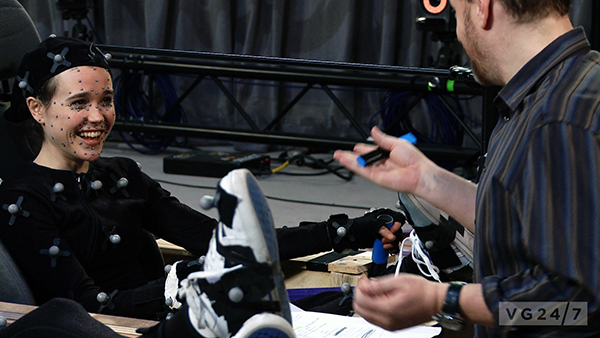
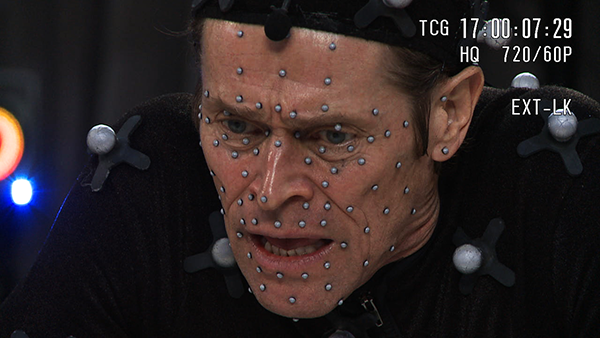
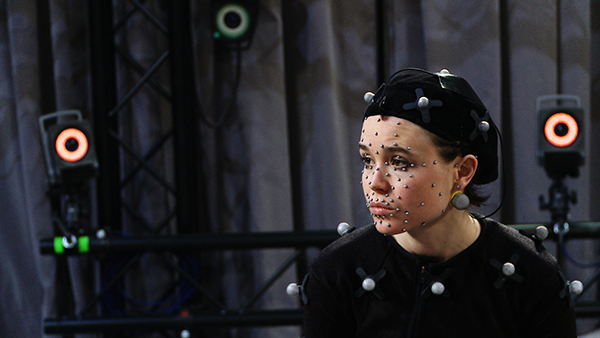
Critics also slaughtered the game because they felt it wasn’t challenging enough and required very little mastery to play. Again, I don’t think Cage ever intended it to be challenging in that regard. The concept of the game had nothing to do with how good of a gamer you are or your precise technical ability to the use a controller. The game never actively tried to make you fail or presented a boss or environment that you must overcome. The game challenges you psychologically and emotionally by allowing you to make decisions for Jodie based around feelings of depression, anger, spite, love, heroism, and compassion but then forces you to live with those choices and experience the consequences. There’s no level of competition in this game; not you versus someone else, or you versus the artificial intelligence, or you collecting the most gold coins, as in the same way that you don’t compete with a book or movie when you read or watch it.
Beyond is full of action sequences where you mash buttons or time your movements with the thumb sticks in slow-motion, but these scenes are design to induce stress and chaos, exemplifying what Jodie is experiencing on the screen. The haste and confusion you feel during these moments are equally as important as the outcome, once again evoking a physical response and bringing you that much closer to the story. There is a sense of pressure and urgency as these action sequences can be failed if you don’t execute them properly, and failing affects how things play out with Jodie in the moment. While I agree this system isn’t Beyond’s crowning achievement, the game controls were purely designed around the progression of the story while maintaining your emotional attachment and physical engagement with the characters. The controls were never meant to be a flight simulator and keeping things basic allowed them to maintain the integrity of the story, not challenge your ability to play the game.
Game critics did change their tune when it came to graphics and universally everyone was blown away by them. I believe it was the best looking video game at release on the PS3 and even 2 years later it still looks good and often times better (especially facially) than new AAA games on the PS4. Most all game critics, just as the movie critics, also attributed the majority of their praise towards the performances given by Ellen Page and Willem Dafoe. It’s undeniable that this game would have suffered tremendously if these characters weren’t believable, regardless of how well the story was written. Without the real human emotion acted out under image capturing and syncing lips to voices with cadence of speech, I don’t see how this game could have worked. This level of realism and detail was a monumental achievement for video games and set a new bar which all contemporaries should be compared.
With that said, I’ll admit that the game did have some limitations and inconsistencies. The whole CIA aspect seemed tacked on simply to increase action and appease gamers. The extra sequence extended gameplay a few hours and didn’t really add anything compelling to the root story. Other plot lines, especially about love interests, weren’t fully developed. Why did Aiden, the mysterious supernatural entity, have a problem with Jodie dating? More backstory or leading conversations could have been helpful. I didn’t even know that Jay was a romantic interest until they sprung the “kiss him” decision when the two were about to part ways. Kissing him would have seemed awkward as there was no build up, flirting, or prior attraction by either side—if anything Jay seemed annoyed by Jodie. Likewise, I went through the entire game rejecting Eric Winter’s character, Ryan, even after he saved Jodie’s life. I liked that I was able to make that choice and the game didn’t force me to be with Winter, but it would have seemed more natural if they gave me a reason to like him. But here’s the thing, maybe they did? Maybe all those answers are in the game but the choices I made while playing didn’t allow that particular clarity or resolution?
The bottom line is that I truly enjoyed Beyond. I felt it was a deeply rich and engaging experience. It was a compelling and provocative story that gave you a true connection to the main character, so much so that I even got misty-eyed a few times throughout play. That’s a huge statement and advancement for gaming in itself. I can’t think of any other game that brought me to tears (except when a dog dies) or created nearly as much emotional investment on my part. You have the ability to be as good as you want or as bad as you want, even as passive or aggressive as you want, with the game responding appropriately. Finally in the end you make the ultimate choice of whether Jodie lives or dies, each choice being equally justifiable and creating an entirely different outcome for the world around her.
I don’t think I’ve ever gone back and replayed the campaign mode of any game in the last 10 years, besides The Last Of Us. I’ll continue to play multiplayer, but not the actual story mode. There was never a reason to, and generally speaking video game plots aren’t nearly as compelling as most of my favorite movies that get re-watched. However, Beyond gives me that reason. Not only am I curious as to what would happen if I made different decisions, but I also know the game can have an entirely different ending, multiple times over, making it still fresh and exciting to play. Page and Dafoe made me care about these characters and I don’t mind spending more time with them and discovering things I may have missed the first time through.
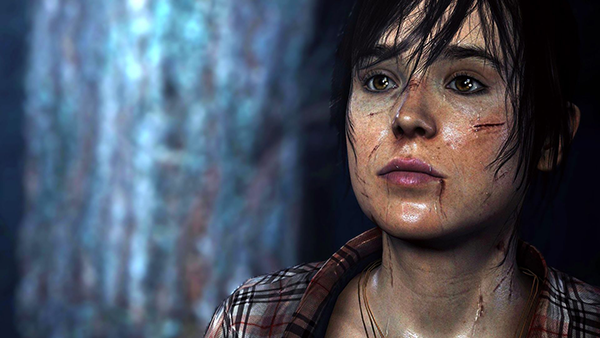
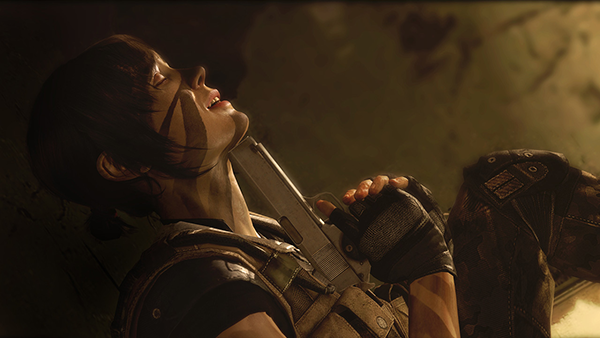
My biggest fear for Beyond comes from the critical rejection it received in 2013—which lead to a lot of people skipping it. Beyond’s designers and developers took a huge chance when making this game. They convinced top-tier actors to participate in a genre and medium in which they had no experience or knowledge of how it may impact their careers. They pioneered a new avenue of cinematic motion capturing and created video game characters out of real people that you could control. They took a highly complex and controversial topic such as death, souls, and afterlife and unabashedly told the story that was near to Cage’s heart. The main character is a believable, realistic young female and she was created on the merit of the story rather than as an object to sell units. Lastly, they challenged gamers to look at what video games could be by rejecting the conventional model we're accustomed to.
Beyond is at the forefront of the evolution of storytelling and its success will influence if other writers are given the opportunity expand and explore this unique medium. Are gamers ready to move beyond blood and guts and transcend into a genre that is acclaimed for it’s meaningful contributions to pop culture and the zeitgeist? How long before a video game earns an Oscar? How long until you realize that a gaming machine is much more capable of exploring human emotion, connecting with an audience in an active fashion, and has the ability to tell an entirely new kind of story never before experienced rather than continually remaking Space Invaders over and over again?
I want Beyond to be The Jazz Singer of the video game industry. Up until 1927, almost 40 years after the invention of motion pictures, all movies were pretty much the same. Usually a single scene portraying everyday or public life with no music, sound effects, or spoken dialog. Every film was completely silent usually with no plot or significant story to tell. One day a little film came along that changed the course of history—it had sound, it had characters talking, it had people singing, it also had a point and a story to tell. The Jazz Singer completely transformed motion pictures forever and saved an industry that was becoming pigeonholed into nonsensical low-value entertainment. The producers used technology in a completely new way and gave people an entirely new experience when watching movies. It demonstrated what could be achieved through motion pictures and inspired countless others that followed it. Sure, the old movie didn’t sound as good as a live jazz musician playing in a night club and there were lots of inconsistencies in the film, but it was a massive leap forward for storytelling.
Beyond: Two Souls did so many things right for video games that I’m able to happily look past any imperfections in hopes of moving toward a more compelling and inspired era within the industry. The nearsightedness of critics reflects the immaturity of the genre and continues to fuel the stereotype of a fat dude slobbering over his controller in his parent’s basement, rather than celebrating an opus of unparalleled storytelling brought to life by some of this generation’s best actors. Approach Beyond without expectations and simply experience a story that couldn’t be delivered in any other format or at any other time in human history.
A big thank you goes out to David Cage, Quantic Dream, and the hundreds of folks who dared to do something different by creating this story. I appreciate what you’ve done.








